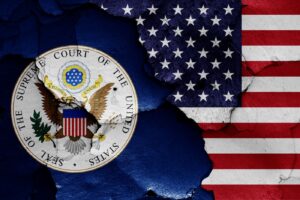Yesterday was Constitution Day, a little-known federal holiday that commemorates the signing of the United States Constitution at the close of the Philadelphia Convention in 1787. Since 2005, Congress has required all publicly funded educational institutions to observe the day with events and programming related to the Constitution. One question that inevitably arises when we pause to honor the Constitution, however, is what we should do with those seemingly dishonorable provisions involving slavery. On January 6, 2011, for example, the newly elected leadership of the 112th Congress arranged to have the Constitution read aloud from the House floor. But before reading commenced, Rep. Jay Inslee (D-WA) asked the Speaker for a point of clarification. Will “we be reading the entire original document without deletion,” Inslee inquired, “or will we be reading a document with deletions that may or may not have been accomplished by respective amendments?”
Members of the House, it turned out, would be reading an edited version of the Constitution, with superseded provisions ignored. Although Inslee’s was a procedural question, the point of the requested clarification was to underscore the provisions that would not be read. Given the struggle of “African Americans, given the struggle of women, given the struggles of others to create a more perfect document,” Jesse Jackson, Jr. (D-IL) commented in response, “to hear that those elements that have been redacted by amendment are no less serious, no less part of our ongoing struggle to improve the country and to make the country better, and . . . many of us don’t want that to be lost upon the reading of our sacred document.” Of particular importance, in this vein, were those original constitutional provisions dealing with the institution of slavery. As Jackson further explained, “when we were informed, for example, that the three-fifths clause would not be mentioned and that other elements of the Constitution which justify why some of us fight for programs in the Congress will not be written in the redacted version, it is of consequence to whom [sic] we are.”
The clause highlighted by Jackson appears in Article I, §2, and it provides, cryptically, that state population for the purposes of representation and direct taxes be determined by adding to the “whole Number of free Persons . . . three fifths of all other persons.” As all delegates to the constitutional convention knew, but many had scruples about explicitly saying, those “other persons” were enslaved Africans, and the practical implication of this provision was that sixty percent of a state’s slave population would count toward the basis of state representation in the House of Representatives. Although the second section of the Fourteenth Amendment, passed in the aftermath of the Civil War, makes the clause irrelevant to contemporary constitutional law, the recent dispute in the House chamber is part of a long-running debate about the relationship between the original Constitution and slavery. That relationship is complex, and it goes beyond the three-fifths clause. The Constitution of 1787 also conspicuously guaranteed that the African slave trade would not be federally abolished prior to 1808 (Art. I, §9) and that fugitive slaves would be “delivered up” to whomever “Service or Labour may be due” (Art. IV, §2). Other seemingly innocuous clauses in the Constitution—such as the indirect election of the president by the electoral college or the three-fourths of states required to ratify an amendment—also had the effect of bolstering Southern representation (and thus the slave interest) in the new republic.
From one perspective, the Constitution is thus a document stained with the original sin of slavery, a charter to be criticized rather than praised. As Thurgood Marshall, the country’s first black Supreme Court justice, confessed to a crowd at a celebration of the Constitution’s bicentennial:
I do not find the wisdom, foresight, and sense of justice exhibited by the framers particularly profound. To the contrary, the government they devised was defective from the start, requiring several amendments, a civil war, and momentous social transformation to attain the system of constitutional government, and its respect for the individual freedoms and human rights, we hold as fundamental today.
Start your day with Public Discourse
Sign up and get our daily essays sent straight to your inbox.According to this line of thought, the struggle for liberty in America is largely a struggle against the Constitution, and the proper object of our celebration is the progress we have made beyond the “outdated notions of ‘liberty,’ ‘justice,’ and ‘equality’” held by the founding generation.
Of course, similar criticisms of the Constitution have been a mainstay of American politics since the founding itself. The Anti-Federalist Luther Martin—dubbed America’s “drunken prophet” by a recent biographer—insisted during ratification debates that the Constitution “ought to be considered as justly exposing us to the displeasure and vengeance of Him, who is equal Lord of all, and who views with equal eye, the poor African slave and his American master!” Many of the nineteenth-century abolitionists, such as William Lloyd Garrison, denounced the Constitution in equally unequivocal terms. Our fundamental law, Garrison declared, contained within it “a covenant with death” and an “agreement with hell.”
Perhaps. But from a different vantage point, many during the founding era and well into the nineteenth century claimed the Constitution was nothing if not an anti-slavery document. Each of the provisions dealing with slavery spoke of slaves only as “persons,” and slavery was explicitly treated as a state, rather than a national, institution. Paradoxically, counting slaves as full persons would have been a boon to slavery, and the three-fifths clause was designed to weaken the political power of the slave states. By the Constitution’s own terms, free blacks (even in the South) counted as whole persons for the purposes of representation, and nothing in the Constitution prevented Americans in the several states from shutting down the slave trade, adopting plans for gradual emancipation, granting the equal protection of the laws to all persons, or expanding suffrage. Even the provision protecting the slave trade for twenty years was an acknowledgment that Congress indeed had the power to abolish the trade in 1808, and this, James Wilson claimed, laid “the foundation for banishing slavery out of this country.”
Slavery was a great evil, to be sure, but the Constitution was neither its source nor its guarantor. Indeed, the rhetoric of the Revolution and the principles of the Constitution both seemed to undermine claims for arbitrary power and the private use of force, which were inherent in the relationship between master and slave. This tension between slavery and the principles of American government was palpable during the Revolutionary era, and denunciations of slavery were commonplace. James Madison, long remembered as the Father of the Constitution, considered chattel slavery to be “the most oppressive dominion ever exercised by man over man,” and Madison expressed his own view during debates at the Constitutional Convention that it would “be wrong to admit in the Constitution the idea that there could be property in men.” The influential Virginian (and slaveholder) was not alone in his reticence to name the institution, and it is telling that the word “slavery” never appears in the constitutional text.
Consider, along these lines, Abraham Lincoln’s interpretation of those three main constitutional compromises with slavery. “I understand the contemporaneous history of those times,” Lincoln maintained during his famous 1858 debates with Stephen Douglas, “to be that covert language was used with a purpose, and that purpose was that . . . when it should be read by intelligent and patriotic men, after the institution of slavery had passed from among us—there should be nothing on the face of the great charter of liberty suggesting that such a thing as negro slavery had ever existed among us.” The key to understanding Lincoln’s anti-slavery interpretation of the Constitution is bound up with his take on the relationship between the Declaration of Independence and the Constitution. In an allusion to a biblical proverb, Lincoln described the Declaration as an “apple of gold” around which the Constitution was a “picture [or frame] of silver,” created “not to conceal, or destroy the apple; but to adorn and preserve it.”
The Civil War Amendments, which, among other things, abolished slavery in the United States and guaranteed the equal protection of the laws to all persons, can therefore plausibly be interpreted, in Lincolnian fashion, as the working out of an aspiration already latent in the original Constitution. We need not, in other words, choose between venerating the Constitution and denouncing the evils of slavery. As the escaped slave, prolific orator, and former Garrisonian, Frederick Douglass, told a crowd in a Fourth of July oration in 1852, the founders’ Constitution gave “neither warrant, license, nor sanction of the hateful thing [i.e., slavery]; but interpreted as it ought to be interpreted, the Constitution is a glorious liberty document.” We have lost, and badly need to recover, this understanding of our Constitution. For if we did, we could read the unedited text of the Constitution with an appreciation for its complexities, an admiration of its fundamental principles, and a frank acknowledgment of the debt we owe to the founding generation—even, and perhaps especially, in those areas in which we have made great progress.









